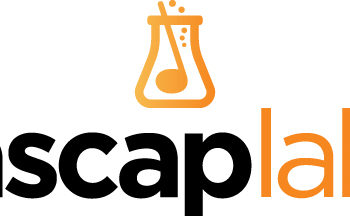Nine music publishers (including Ole, Peer and Ultra) have sued trendy fitness/technology company Peloton for copyright infringement. The lawsuit seeks $150M in damages from Peloton for allegedly using over a thousand unlicensed songs in its workout videos, which are used in conjunction with their exercise bikes and treadmills. As illustrated in their polished TV commercials, Peloton bikes have touchscreens that can stream videos and on-demand classes supervised by instructors. The bikes start at approximately $2,000, plus $39 a month for access to classes.
The lawsuit states:
“Indeed. Peloton has publicly acknowledged that its consumers embrace music as central to the Peloton experience and consistently rank it as one of the top aspects of the brand.”
The lawsuit contends that Peloton knowingly infringed, using the plaintiff’s songs in their videos without obtaining synchronization (“Sync”) licenses for the use. A music sync license is a music license granted by a copyright holder of a composition, allowing the licensee to synchronize (“sync”) music with visual images such as in a film, TV show, music video, etc. The way the system works is that music publishers collect the income from sync licenses and pay a percentage of it to songwriters.
Recording artists such as Rihanna, Justin Timberlake, Ed Sheeran, Bruno Mars and Lady Gaga all had their songs used without permission, according to the lawsuit.
The complaint alleges: “There is no doubt that Peloton’s infringement was and continues to be knowing and reckless. Peloton fully understood what copyright law required, having entered into sync licenses with certain other copyright holders, while trampling the rights of Plaintiff’s by using their musical works for free and without permission.”
The National Music Publishers Association (“NMPA”) President, David Isralite, discussed the importance of music to the Peloton brand:
“Unfortunately, instead of recognizing the integral role of songwriters to its company, Peloton has built its business by using their work without permission of fair compensation for years.”… It’s frankly unimaginable that a company of this size and sophistication would think it could exploit music in this way without the proper licenses for this long, and we look forward to getting music creators what they deserve.”
Peloton has not yet indicated what its defense is. Sometimes copyright disputes revolve around not just whether a company has a valid license, but whether the license was exceeded in scope or duration. Since Peloton apparently failed to obtain any synch licenses whatsoever for so many songs, it is hard to believe it was an oversight.
Many people find it strange that a multi-billion dollar company such as Peloton would find itself in what appears to be an indefensible legal position. One would think this lawsuit has hurt Peloton’s sales significantly. Often, these types of cases are settled by the parties or sometimes by the court in an expedited proceeding called summary judgment.
In light of the public relations nightmare this lawsuit presents for Peloton, and what appears at this stage to be a very strong case on behalf of the plaintiffs, I think this case is likely to settle for a very substantial sum.
GLENN LITWAK is a veteran entertainment attorney based in Santa Monica, CA. He has represented platinum-selling recording artists, Grammy-winning music producers, hit songwriters, management and production companies, music publishers and independent record labels. Glenn is also a frequent speaker at music industry conferences around the country, such as South by Southwest and the Billboard Music in Film and TV Conference. Email Litwak at gtllaw59@gmail.com or visit glennlitwak.com.
This article is a very brief overview of the subject matter and does not constitute legal advice.














